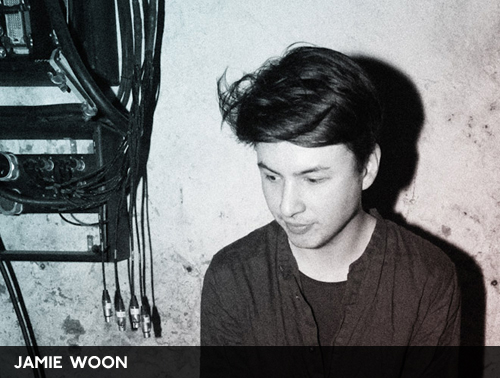EQ's Jordan Muckley went and saw Jaime Woon Live and this is what he thought about it…
Given that 2011’s musical scope seems to be for erudite London eggheads armed with laptops whilst attempting to mingle droned dubstep with the familiarity and forward song writing and the number one artist on the Sound of 2011 poll is just another conventional pop start of the shelf, we don’t have much to look forward to, no?
Well, that’s where we may be wrong. The sounds that are coming out of London at the minute are ones of post-dubstep boredom and despair. Has it gone too far into the commercialised margin? Probably, yet what we are treated to with this fine young fellow known as Jaime Woon is a post-dubstep, slight-R’n’B fest of fine, fiddling craftsmanship of electronic soul. Maybe a bit of a bubble and squeak of genres you may say, but it damn sure works. Jaime Woon is already loved, tiptoeing over the thirst left by The XX to form a tenor of the early noughties: a dark and caring music that is surrealistic in its own sense.
He is present on promulgation amidst an adoring audience of no dominant denomination that lap up his songs with a blare.
With its scintillating synths harkened by Jamie Woon’s rhapsodic and ripe voice, “Blue Truth” is described by Woon as ‘the record most similar to Phil Collins on the whole album’. And monsieur Collins would be proud. His next single “Lady Luck” gets an outing that echoes something of a barbershop quartet with an innocent murmur of a keyboard melody bouncing off against Woon’s rich vocal. It is not only a haunting ballad, but adds to that mystique. He is engaging; you cannot take your eyes away from him.
A little sense of mystery tends to conjoin with music like his – low key and mellow offshoots of R&B of the kind propagated by the likes of The XX and James Blake. Woon isn’t like the latter at all; but what has helped his cause is the latter has returned the public to emerged frequencies making Woon very much a soulful-post-dubstepper to watch.
His best known track “Night Air” is a more developed and complex production that signifies his sound making full use of his flanked keyboardists and drummer before exploding into a full-on-funked-up jam. Closing his set with the human beatboxing, cantillating “Spirits” is fascinating; adding a final snap to proceedings.
You cannot help but feel a sense of mystique when it comes to Jamie Woon. His sound sends you in to another world that can only be accessed by some a turn of one of the many knobs and sliders on his utopia of musical illusions. His appeal boils down to his assiduous sense of rhythm – not just the hand claps, but his casual swagger – and his insistence over the spacing of his music. Woon takes the pop-soul genre into his own silence of space where the screeching squawks of dubstep isn’t everyone’s favourite flavour; its ambiance has good side-effects. We have the sound of the 21st century.
A recount should be in order.



